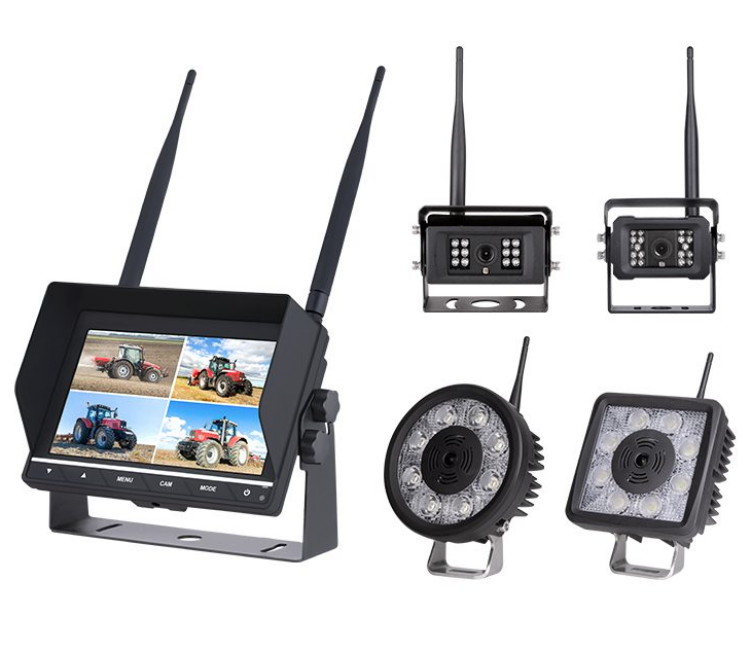In the world of vehicle safety, the reliability of a camera system can significantly impact operational efficiency. Wireless rear view camera kits have become a popular choice for many users due to their ease of installation and flexibility. However, the question of signal reliability remains a crucial concern. This article will explore how reliable the signal of a wireless IP camera system is, examining key factors that influence performance.
Signal Strength and Quality
One of the primary concerns with any wireless reversing camera kit is the strength and quality of the signal. A robust wireless IP camera system typically operates on a 2.4 GHz frequency, which can provide stable video transmission over considerable distances. For instance, high-quality systems can maintain reliable signals up to 140 meters in open spaces, ensuring that users receive real-time monitoring without interruption. Factors such as physical obstructions, interference from other wireless devices, and environmental conditions can affect signal strength. Therefore, it’s essential to choose a kit designed to mitigate these challenges, offering consistent performance even in less-than-ideal conditions.
Interference and Obstacles
Interference is a significant factor that can impact the reliability of a wireless rear view camera kit. The presence of other electronic devices operating on similar frequencies can cause disruptions. Additionally, physical obstacles like trees, buildings, or even the vehicle itself can weaken the signal. High-quality wireless IP camera systems often incorporate advanced technologies to minimize interference, such as frequency hopping and signal encryption. These features help maintain a stable connection, allowing for clear video transmission even when obstacles are present.
Installation and Placement
The installation and placement of a wireless reversing camera kit play crucial roles in signal reliability. Proper positioning of the camera and monitor can greatly enhance performance. Ideally, the camera should be mounted in a location with a clear line of sight to the monitor, minimizing potential interference. Additionally, ensuring that the system is installed according to the manufacturer’s guidelines can help optimize signal stability. Some wireless IP camera systems come with adjustable antennas or signal boosters to enhance reception, which can be particularly beneficial in large vehicles or agricultural machinery.
Ensuring Dependable Monitoring for Safety
In summary, the reliability of the signal in a wireless rear view camera kit is influenced by various factors, including signal strength, interference, and installation practices. Users can significantly enhance their experience by selecting high-quality systems designed to offer stable performance even in challenging environments. When properly installed and utilized, a wireless IP camera system can provide dependable real-time monitoring, contributing to safer driving and operational efficiency.
For those seeking a reliable solution, Luview offers a 7-inch AHD night vision wireless camera system, designed specifically for agricultural machinery. With a transmission distance of up to 140 meters and advanced features for clear monitoring, it stands out as an excellent choice in the realm of wireless reversing camera kits.

